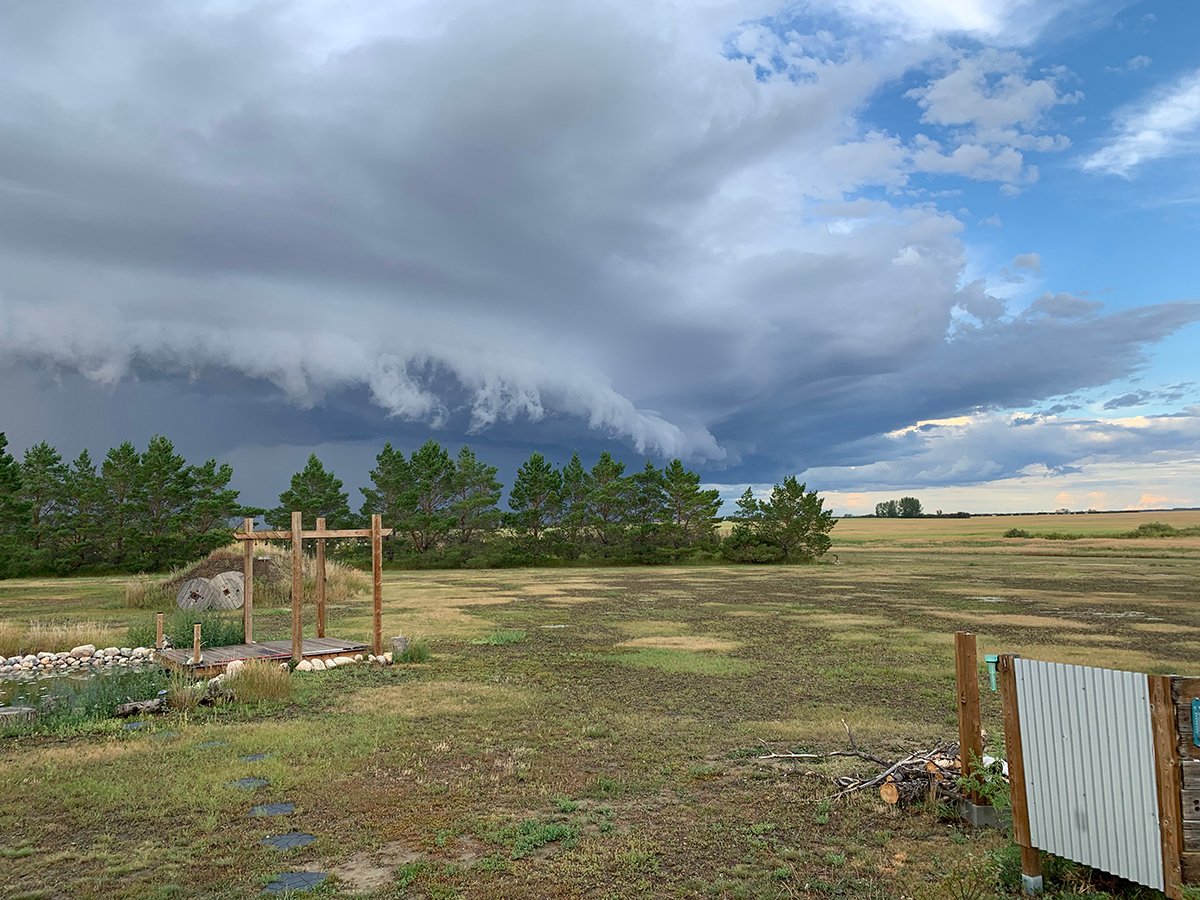While Liberal leader Stéphane Dion tours Canada this summer trying to convince Canadians that a carbon tax should be part of the country’s response to climate change, farmers will be trying to figure out how it would affect them.
Details, where the devil tends to lurk, are scarce.
“We listened in to Dion’s conference call on this and I think a lot of people are still confused,” Rod Scarlett, executive director of Alberta’s Wild Rose Agricultural Producers, said July 7.
“There is concern about increasing fuel costs but he says it won’t apply to gasoline. But where it will hit farmers is in byproducts that are based on fossil fuels like fertilizer and other inputs. But how much? Who knows?”
Read Also

Storm dynamics and extreme rainfall
Besides moisture, instability and orographic lift, the next biggest factor that contributes to heavy or extreme rainfall is storm dynamics.
Canadian Federation of Agriculture president Bob Friesen said a representative of the Liberal party has been invited to address the CFA summer meeting in Moncton at the end of July to provide more details.
“We’re still in the process of evaluating the numbers,” he said. “It hasn’t been broken down by sector. Clearly, there will be some input cost impact but how much is unknown.”
Friesen said the CFA wants to make sure that a carbon tax does not make Canadian farms more costly to operate than their American competitors.
“And we will work very hard to ensure that the work farmers already have done on carbon sinks and emissions is taken into account in any policy.”
The Liberal “green shift” policy unveiled in mid-June proposes to tax carbon dioxide emissions and use the money raised to reduce income taxes, mainly at the lower income level, to provide a child tax credit and to invest in environmental innovations.
While Dion, who was in Alberta earlier this week promoting the idea, says gasoline fuel would not be subject to the tax, diesel would be exempt only in the first year. He insists the tax will be “revenue neutral” and none of the billions of dollars it would raise would stay with government.
While farmers puzzled over what cost impact a carbon tax would have, Conservatives were happy to provide their version of the answer.
In the House of Commons and at the Commons agriculture committee in June, Conservative MPs said the Liberal carbon tax proposal would hit farmers and rural Canada hard.
“It is going to damage rural Canada, not only farmers but rural Canadians who live in small communities,” said northern Alberta MP Brian Storseth at a mid-June committee meeting.
Even Liberals voted with the government to support Storseth’s proposal that when MPs return to Parliament Hill in September, the committee should hold hearings on the farm impact of a tax on carbon emissions.
The committee will study “the effects of a carbon tax or any broad-based environmental tax on Canadian farmers and ensure they are not saddled with a carbon tax, which would increase their input costs and hurt their competitiveness.”














